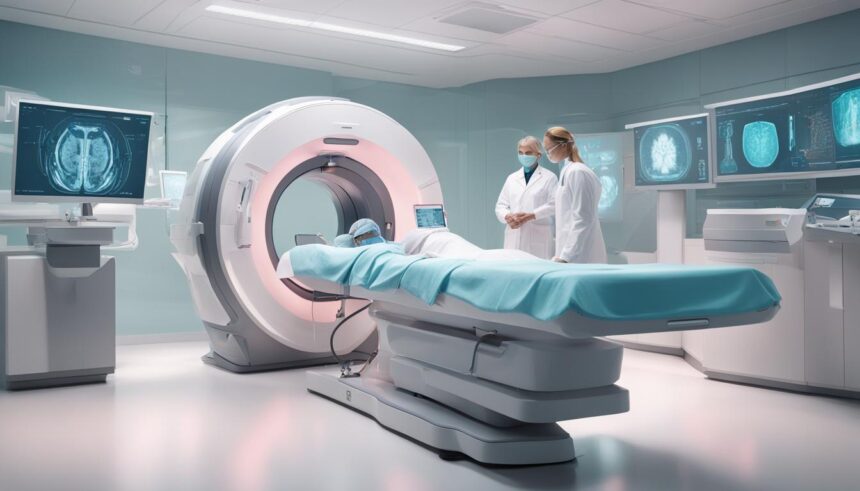At the ESTRO 2024 Congress, GE HealthCare introduced the Revolution RT and updated iRT platforms, showcasing advancements in radiation therapy and AI for personalized cancer care.
At the ESTRO 2024 Congress in Glasgow, GE HealthCare revealed significant strides in oncology treatment with the introduction of the Revolution RT, a new radiation therapy computed tomography (CT) system designed to enhance accuracy in imaging and streamline simulation workflows for more personalized cancer care. This innovation is set to transform the oncology landscape by enabling clinicians to deliver more accurate and timely treatments, which are crucial given the complexities and variabilities of cancer.
The Revolution RT system is tailored to accommodate a higher volume of patients and reduce the complexities involved in radiation therapy (RT) simulations. It combines a wide-bore CT platform with advanced imaging capabilities, aimed at facilitating precision in radiotherapy simulation. This integration of deep learning technology seeks to improve the imaging process, thus enhancing the efficiency and effectiveness of cancer treatment.
Additionally, GE HealthCare introduced an updated version of their Intelligent Radiation Therapy (iRT) platform, emphasizing advancements in artificial intelligence (AI) and connectivity. The iRT platform, now enriched with AI enhancements, allows for greater interoperability among various oncology care applications and simplifies the clinical workflow through automated data transfer and task harmonization. These enhancements aim to shrink the critical time from treatment planning to the delivery of the first radiation dose, a factor that is vital for patient survival rates.
The iRT platform includes noteworthy collaborations and integrations, such as the MR Direct feature with Spectronic Medical, which uses AI to translate MR simulation images into CT imaging for radiotherapy dosage calculations. Another significant update is the InstaPlan feature developed with RaySearch, which allows on-the-spot treatment plan creation while the patient remains on the simulation table. This represents a groundbreaking shift in reducing the time between simulation and treatment commencement.
Also highlighted was the acquisition of MIM Software by GE HealthCare, which notably extends their capabilities in imaging analytics and digital workflow optimization. The radiology software from MIM offers interoperable solutions that integrate seamlessly with existing systems, thereby enhancing automation and flexibility in workflow management.
This array of innovations comes in response to the pressing need for expedited yet personalized cancer treatment. Research indicated by the British Medical Journal underlines the urgency in improving treatment timelines, as a delay of just a month in cancer diagnosis and treatment can significantly increase mortality risk.
Through these advancements, GE HealthCare is not only streamlining oncology treatment processes but also enhancing the accuracy and efficacy of treatments. Their efforts exemplify a comprehensive approach in tackling the unique challenges presented by cancer – a disease marked by its complexity due to the varied ways it manifests in patients. Each technological enhancement introduced at the ESTRO 2024 Congress symbolizes significant strides toward more adaptive, precise, and efficient oncology care, which is crucial in reducing the burden of cancer across the globe.
For more information on GE HealthCare’s latest oncological innovations, one is encouraged to explore their exhibit at the ESTRO 2024 Congress or visit their detailed website showcasing their expansive range of solutions aimed at improving cancer treatment outcomes worldwide.





